Blunders made by Pakistan during
the Kargil war
It was a smart but crazy plan by the Pakistanis
without even seriously considering the Indian response. They expected India to
make some noise followed by cease fire due to world pressure and they would
hold on to the posts. Their plan was to occupy around 15-20 peaks. Having
crossed over into unoccupied areas, the excited young Pakistani soldiers
expanded their presence. They ended up with the occupation of 120 peaks. They
were now in such a logistical stretch, making themselves vulnerable to Indian
military attacks. And the unexpected happened. India retaliated strongly
pounding on the Pakistanis. They were easy target for the Indians though it was
a tough and difficult terrain. The Pakistanis took a large number of casualties
and the rest ran for their lives. It was the result of wrong planning by the
Pakistani generals.


Nawaz Sharif who was the prime minister of Pakistan
during the 1999 India Pakistani war said, ‘People who were responsible for the
deaths of hundreds of your soldiers in Kargil; it was a call by few
generals....we were thrown into war. The cause of the war was the infiltration
of Pakistani troops— disguised as Kashmiri militants—into positions on the
Indian side of the LoC, which serves as the de facto border between the two
states in Kashmir.
This particular operation was given the
codename Operation Safed Sagar. The cause of the war was the infiltration
of Pakistani troops - disguised as Kashmiri militants - into positions on the
Indian side of the LoC, which serves as the de facto border between the two
states in Kashmir. The 60-day-long Kargil War, from May 3 to July 26, 1999,
took place after Pakistani troops were detected on top of the Kargil
ridges. Pakistan had started planning the attack in 1998 itself.
During the Kargil War, the gallant soldiers of
the Indian Army triumphed over the Pakistani invaders with undaunted
courage and determination, tweeted @adgpi. The Indian Air Force
(IAF) and Indian Army worked in close coordination, and airpower inflicted
heavy damage on the intruders and also reduced casualties on the ground.
Capturing Indian peaks in Kargil sector was a
master plan. Pakistan could have exchanged Kargil with Siachen. But there was a
flaw in the plan - Pakistan failed to anticipate Indian response. Pakistan
underestimated the Indian response. Pakistan has thought that now they are a
nuclear power and India would not dare to start a limited or full war. But
India (under a caretaker Government) decided to re-capture those posts
irrespective of costs as India felt it was deceived by Pakistan.
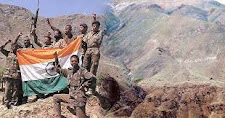
Pakistani military kept its political leadership in
dark till very end. This proved to be fatal. When things went wrong civilian
leadership was able to convince the world that they were not involved in the
planning. But this was a secret plan of some Pakistani generals without taking
the country into confidence. Pakistan found hardly any support from international
community because Pakistani friends were not taken into confidence. Even China
didn’t openly support Pakistani action. Indian side claimed the moral high
ground in the conflict. Americans later forced Pakistan to withdraw from the
remaining posts.
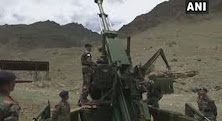
The official position of Pakistan till the very end
was that Pakistan was not involved in the operation and it was the work for
Kashmiri freedom fighters. Thus, Pakistan was unable to support its troops when
these soldiers were facing full might of Indian Army. Even Pakistan didn’t take
back the body of its fallen soldiers who had sacrificed their life for Pakistan.
The much maligned Bofors gun played a major role in India’s driving out the Pakistanis.
This is what actually happened in Pakistan. Over twenty
years ago in May 1999, the ongoing Pakistan-India dialogue, was subverted by
Operation Koh-i-Paima (KP), popularly known as the Kargil Operation. In
Pakistan, a clique in the military high command had autonomously engaged on a
divergent track.
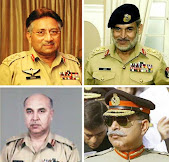
The Kargil clique, comprising four generals —
including Pakistan’s army chief, General Pervez Musharraf; the Chief of General
Staff (CGS) Lt. General Aziz Khan, Corp commander of X corps, Lt General
Mahmud, and the commander, Force Command Northern Areas (FCNA), Major General
Javed Hasan - planned Operation KP in complete secrecy. The operational
command, covering the geographical area of operation as well as the command and
control of troops and heavy artillery, was with the Kargil clique. And, hence,
they could move troops and ammunition without involving others and sure of
success.

The operation was initiated at the end of November
1998, before the Lahore summit. In August-September, Pakistan-India talks on
Siachen had ended in deadlock. In October, Prime Minister Nawaz Sharif
appointed Musharraf as the army chief. Having served in areas along the Line of
Control (LoC), the clique was familiar with the terrain. They all believed
negotiations alone would not settle Kashmir issue. A plan, almost similar to
one presented by Musharraf to former Prime Minister Benazir Bhutto, was agreed
upon by the clique; Pakistani troops would interdict and block NH-1, the
lifeline of Indian troops based in Leh. A panicked India would then turn to the
international community. Given the nuclearised South Asia, the international
community would advise India to engage with Pakistan. This would lead to
negotiations on Kashmir, or at least to India vacating the Siachen glacier it
had occupied in 1984.

The clique’s planning was dictated by naïve
assumptions that were rooted in delusional reading of the Indian and the
international response. Equally, they believed India would not be able to
militarily get the Kargil heights vacated. For interdiction, the plan was to
occupy around 15-20 peaks. Having crossed over into unmanned areas, the excited
young soldiers expanded their presence. They ended up in occupation of 120
peaks. They were now in a logistical stretch, making themselves vulnerable to
Indian military attacks. That’s exactly what happened. They were hit by the
Indian army with full power and literally pounded.
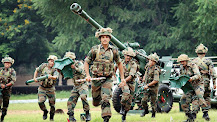
PM Sharif was first briefed on Operation KP months
after it had been initiated. On May 17, armed with complicated maps, the army
chief and his key commanders briefed Sharif. The CGS, General Khan, told Sharif
he would go down in history as the liberator of Kashmir. When his foreign
minister, Sartaj Aziz, reminded Sharif of the Lahore summit and the ongoing
negotiations with India, Sharif did not agree. After all, conferences and
paperwork would not lead to Kashmir’s liberation. Sharif was on board.
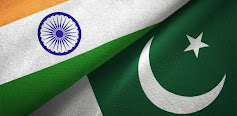
Subsequently, as the days passed, the Operation
unfolded to India’s advantage. By mid-June, having sized up the military and
diplomatic situation, India was fully in command. Having initially suffered
huge casualties, India’s unceasing ground and air attacks inflicted heavy
casualties on the Pakistani troops, and disrupted their logistics and supply
lines. Faced with artillery pounding, especially of the heavy Bofors guns,
Pakistan’s soldiers could only fight on but to no avail. Delhi made winning
diplomatic manoeuvres. PM Atal Bihari Vajpayee’s message was clear - my army
will fight to get the infiltrators out, but will not cross the LoC, or open
other fronts, provided the international community put pressure on Pakistan to
pull back its troops.
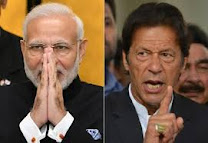
With Pakistan’s weakened position, mounting
casualties, disrupted supply lines, and no deployment of air power, its diplomats
were on the back foot as Pakistan was seen as the aggressor. By end-June, there
was panic among the Kargil clique. Sharif was indirectly asked to step in to
save the situation. When ill-planned back-channels with Delhi proved useless,
the PM flew to Washington asking US to intervene and to basically declare
withdrawal. The curtains on Operation KP came with the elected PM’s ouster by
the cabal of four who had led the country into a difficult strategic space.

Meanwhile over 20 years later, nothing much has
changed. Even if there is no known formal review of Operation KP, the word in
the barracks and beyond is that it was a blunder. With the Imran Khan
government fully backed by the army command looking for a dialogue opening,
nothing has worked in his favour. The days for another Kargil or engaging India
with talks are now gone. India has made its stand clear with the abrogation of
article 370.
Pakistan wants dialogue as it believes genuine
peace between the two countries won’t be possible without resolving Kashmir.
But India is in no mood for talks and India’s position is clear that Pakistan
will have to vacate POK and Northern areas and merge those areas with Jammu
& Kashmir.
Kama Ayurveda MamaEarth Beardo

Also read:
Bloody Mary is bloody good
The Mookambika Devi Temple
MyPost
Hornbill
Festival:
Hornbill festival is held in Nagaland during December. The festival is packed
with plenty of folk performances and rock shows by local artistes. It's also
dubbed as the Festival of Festivals. It's a ten days event where various tribes
of Nagaland come together to celebrate their colourful and rich culture. If
you're a music lover, then the Hornbill International Rock Contest hosted every
year featuring up-and-coming bands across the country. It also showcases the
rich traditions of Nagaland across various local tribes.
Amazon Accessories
Amazon Appliances
................................................................................................
Picture Post
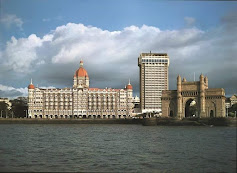 |
| The Gateway of India |
.................................................................................................
.................................................................................................*Your
comments are welcome. We value them, to make the blog better.
*Guest
writers are welcome. Tell us about the subject. Get in touch.
*Please
share this blog with your friends. Medibuddy
.................................................................................................
Aneela Nike PostAnil
Naik
WhatsApp:
91 9969154602
Email: akn929@yahoo.com
.................................................................................................
https://youtube.com/channel/UCwo9Re44827w8c6QPmxlnug
Anil
Naik - YouTube Channel
Please
like, comment and Subscribe. SBI Card
.................................................................................................
If
you feel that Aneela Nike Post is making a difference to your life, do take a
minute to consider a comment or contribution. We would also value your
suggestions as how to make ourselves more relevant to you. Please write to akn929@yahoo.com to give your
valuable feedback.





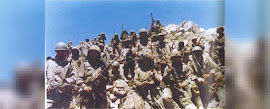
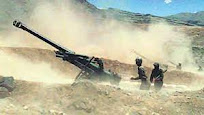















No comments:
Post a Comment